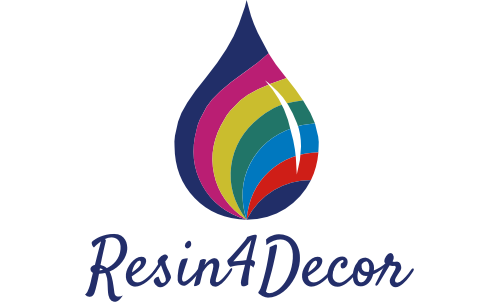In the world of crafting and design, the term "resin" is often used to describe a wide array of versatile materials. From creating stunning jewelry to sealing wooden surfaces or even crafting artistic pieces, resin plays an integral role. Among these, epoxy resin stands out for its unique properties, but how does it differ from other types of resin? Let’s dive into the world of resins and explore their differences.
What is Resin?
Resin is a broad term for a class of synthetic polymers that start as viscous liquids and harden over time. These materials have been used in various forms for decades, from adhesives to coatings. Resins provide a durable finish that is resistant to scratches, UV rays, and chemicals, making them a popular choice for a variety of applications.
Epoxy Resin
Epoxy resin is one of the most widely used resins due to its exceptional characteristics. Known for its durability and strong adhesive properties, epoxy resin is perfect for creating high-quality finishes on a multitude of surfaces. The RESIN4DECOR 1:1 Non-Yellowing Clear Epoxy Resin (24h Curing Time) is an excellent example of epoxy resin that maintains clarity and resists yellowing over time. This type of epoxy is particularly favored in projects where long-term color retention and a clear finish are essential. You can explore more about this product’s specifics by clicking here.
Comparing Epoxy Resin to Other Types of Resin
Polyester Resin
Polyester resin is another common type, often used in marine and automotive repair. It has a quicker curing time than epoxy resin but lacks the same level of durability and flexibility. Polyester resin is also less moisture-resistant, which can limit its use in environments exposed to water.
Polyurethane Resin
Polyurethane resin is popular for casting and coating applications that require a flexible but resilient finish. Unlike epoxy resin, polyurethane permanently remains more pliable, making it suitable for items that need to withstand impact and bending. However, it generally provides a less glossy finish and can be more challenging to work with compared to epoxy.
Acrylic Resin
Acrylic resin offers quick drying times and is favored in artistic projects like sculptures and paintings. It is less heat-resistant and usually not as durable as epoxy resin. While acrylic resin is available at a lower cost, the trade-off is typically seen in its shorter lifespan and reduced durability.
Why Choose Epoxy Resin?
Given its superior strength, resilience, and versatility, epoxy resin is often the top choice for projects that demand a robust and enduring finish. Its ability to bond with various substrates and maintain clarity over time makes it invaluable for countless applications, from artwork to functional surface coatings.
In conclusion, while different resins serve unique purposes, epoxy resin remains a versatile and reliable choice for projects requiring high-quality finishes. For more information on epoxy resins and to explore different products, visit RESIN4DECOR.

